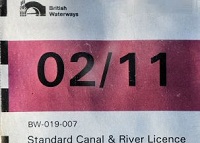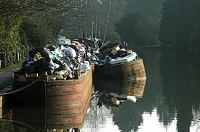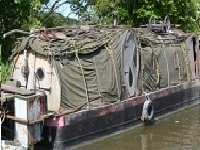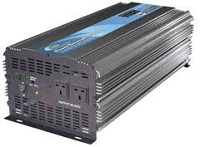.: Living aboard
I lived on my narrowboat in one of the nastiest places possible....... West london..... It was brilliant.......
 British waterways
/
British waterways
/
BW don't particularly like 'constant cruisers', and there is a good reason - we make a mess, our boats don't look pretty and we often are very loud. That said, they cant stop us, sooooo........ Anyway,
 Narrowboat Costs
Narrowboat Costs
Firstly lets look at the paperwork side of it....
you will need a constant cruiser licence for living aboard, unless you happen to have a home marina..... (ha!) Once you have got your licence, you can get away with a fair bit, if your late renewing they are fairly forgiving, they will let you alone if you keep in contact, and pay what you can. A 40ft springer will cost you £600 a year when paid in one go. You can pay in stages.
We all have to have insurance .... 'Basic boat' is usually the cheapest, £60 - £120 a year, dependent on your boat age and size. As a live aboard you will want the minimum.
Boat safety certificate - like an MOT and valid for 5 years.... Cost - £150 approx, more if you have a gas installation. Chris Pengele is a good one to get, if your near West London.
So, there's the paperwork out of the way, for me, that works out at £15 a week.
Water - you will have your own tank built in, and you BW licence lets you use BW water points - so that's included in your licence.
Diesel - How much you use depends on whether you have solar panels and a multifuel stove. My entire boat - heating / cooking / hot water / battery charging is all diesel - so my diesel usage is high - but I like it like that as I don't have to drag gas bottles to my boat or clean up ash from a coal fire. I use about £30 a week in the winter, whereas most people will use more like £5-10. In the summer my diesel cost is still high - £10-£15 a week as i use diesel to cook. Many people use a wet central heating system and a webasto diesel heater - like a handbag sized boiler. These are great but need a fair bit of maintenance.
Multifuel stoves - these are surprisingly costly to run, as logs are expensive, as is coal. These are only cheap if your close to a source of wood. Expect to be paying £20 a week in the winter. I like solid fuel as a concept, I dislike the reality. In my experience controlling the heat is difficult, fuel storage is messy, and logs left on the roof get wet, wont burn, stain your paint and clog up your chimney with tar. A solid fuel stove is extremely cheap to install however - Stove + bit of Pipe + hole in roof + vent in door = job done......... If I was rebuilding my boat from scratch i would have a multifuel stove installed as a primary source of heat / cooking etc - and i would buy a good one - then it would be controllable! Ebay has some lovely lightweight stoves with an oven.... Even better... have a look .
Gas - depends on your usage, but often the cheapest way to heat - as long as larger bottles are used - 18kg (not 37!). Factor £10-£15 a week.
I digress.
Sewage - Your going to have one of two things - a cassette toilet, that can be emptied for free at any elsan point, or a tank, which will need emptying out at a cost of £3-4 every week or so. Personally i have used my initiative, and have installed a normal house toilet, a saniflo and three 20 litre containers in a bunded locker.... This means my toilet actually flushes, doesn't smell, and the tanks can be carried to the elsan point for free disposal.
Winter - You can purchase a winter mooring - right to stay in one place for the winter - price varies but £800 is about the mark.... Hmmmm... If the weather is bad enough to make you need to stay put, BW wont make you move anyway.
Council tax - well there's none of that - but you have to consider the deeper implications - no house = no vote.
Maintenance - see my other page - but in short, expect to go through 10 litres of paint annually, just to keep on top of rust, at least two sets of fuel and oil filters, and oil for engine - Your probably going to be spending £150 across the year.
In short -for me, under £40 a week, and that's not being thrifty!
 Mooring
Mooring
There are lots of official mooring sites, all will be marked by the BW signs, and the maximum stay will be detailed. The penalties for overstaying are fines of £25 a day..... The usual situation is this - sign says '14 day max' you stay 3-4 weeks and get a BW warning ticket attached to your tiller.... Then you stay a few more days and move on.........Warning - there is a rumor that BW now monitor your stops and can send you a bill for overstaying........
 Unofficial moorings
Unofficial moorings
There are two reasons for stopping in an unofficial mooring spot.
1) The spot looks nice!......... So long as you aren't actually stopped in some ones mooring place, and you move on if asked, no one really minds.
2) Safety - if you cant moor up with other boats and you don't like the look of the area, consider mooring on the 'off side' (not on towpath side) - my favorite was to tie up in a hawthorn bush..... If someone wants to get at you they will need to either swim or cut a tree down. Vampires are afraid of garlic, Crack heads are afraid of water.
 Where not to moor
Where not to moor
There are some places its stupid to moor.
1) In A BW official mooring with no one in it, in a busy area - Like Alperton in NW London, its empty for a reason, The kids are a nightmare.
2) Anywhere near a traveller camp - nothing against travellers, but the kids can be difficult - there usually just interested in what your doing, but one wrong move by you and you haven't got an 8 year old to deal with, you have an 8 year old who can fight, backed by dozens of family members and your stuck in a 10 ton chunk of metal that doesn't do much over walking speed. Go figure.
3) Near any pub that doesn't serve food........ if it doesn't serve food its not a twee little canal pub, its the type drunk builders stagger out of at midnight, urinate on your front deck, and want to fight you. I refer you back to the '10 tons of metal at 4mph' remark again, and point out it will also be dark.
4) Park benches. Try to avoid being the only boat near a park bench. You will either get bored old men wondering over constantly, or, more common now, Eastern European laborers with nowhere else to go getting drunk and rowdy. At worst, move so your not directly in front of the bench - this helps a bit.
5) Next to 'that guy' - you can easily spot them - untidy, poorly maintained boats, free roaming dogs, beer cans, pirate flag, etc.
 How to piss BW off
How to piss BW off
This is what annoys BW and will get you thrown off the canal
1) Rubbish
2) Promising to pay your licence but not actually doing it
3) Parties till 3am in a residential area
4) Overstaying at a mooring
5) Returning to said mooring too soon
6) Leaking oil or diesel
7) Loose roaming chickens.
8) Planting stuff on the towpath verge
9) Irritating the local residents in any way
10) Arguing with the BW inspector
Number 10 is great, i witnessed a live aboard tell the inspector he must be blind, he wasn't in this spot last week , and when he didn't listen (rightly) he bodily threw the inspector in the canal.
Being serious for a moment however, we need to give BW a bit of a break, they bend the rules for liveaboards all the time, and if you break down they will let you stay as long as you need to repair, as long as you tell them, so go easy on them - Even when the inspector is rude to you, remember he has been sworn at by boaters all day.
 Friends
Friends
Be careful of who you make friends with on the canal, there are loads of lovely people, but there are also loads of 'that guy', you don't want to end up stuck with a guy that has loud parties all night and makes a mess. Use common sense, be civil. Move on if you have to.
Single lady boaters are treated with surprising respect and usually find life quite pleasant, there are so few that its a novelty! FYI - don't milk it ladies!
 Security
Security
There is no way to be completely protected from burglars on the canal, but keeping close to other boats, keeping valuables out of sight, and trying not to own things that would be attractive to thieves helps.
Kids with stones or an air rifle are a problem. If possible get a ruined old camera - doesn't need to work - and pretend to take pictures of them when they are troublesome - don't shout - they love that and will just cause more agro.
Having your boat stolen is uncommon, mainly because escape is so slow. My personal recommendation is not to worry about it.
Your primary security risk comes from other boaters - they will actually know when you are off the boat, as they will see your patterns. Usually they are not after valuables, Solar panels, diesel, gas and coal are the usual pick of a rogue boater. Keep filler caps locked, coal indoors or in lockers, and gas lockers closed.
Consider keeping a section of plywood behind your sofa, the perfect size to cover a broken window. The moment one window breaks, the kids will assume its fair game to go for the others.
Graffiti - at some point you will get tagged. Accept it, paint over it, (unless its a Banksy) and forget about it.
 Cyclists
Cyclists
If you were thinking kids might be a problem, you forgot cyclists. The problem here is that cyclists treat pedestrians on a towpath like cars treat cyclists on the road. Be careful. Cyclists will run you over, crash into your mooring pins and try to sue you, effect a 'hit and run' on your dog / cat / child, shout at you, splash puddle water all over you / your paint work / dinner, and generally make life miserable. My only tips are - stacking firewood round your mooring pins is a good idea, and most cyclists are on there own, so if you feel feisty, yell at him, its unlikely he has three dozen family members within shouting range.
One thing you should avoid doing is to shout at cyclists once they have passed you. The towpath can be quite bumpy, narrow, close to water, and they have top look over their shoulder to hear you........... if you do its 50/50 whether they fall off, and I have personally witnessed an annoyed cyclist look back at a dog he nearly hit and cycle into the canal, still pedalling.
 Surviving the winter
Surviving the winter
To survive the winter you will need to plan ahead, You cannot carry enough fuel to see you through the winter, you cannot guarantee that the canal will be navigable (ice) for you to go and get any, or for the fuel barge to pass through. You need to Stay close to a fuel source, be it woods for firewood or a petrol station for diesel.
The winter is a beautiful time on the cut, but if you don't prepare you wont enjoy it. Going to bed in the evening is fine, the boat is warm and cosy....... However, by morning, the ten tons of poorly insulated steel in contact with 2 degree water will be very cold. My first winter was awful, when i woke up in the mornings it was too cold to move!
You need to have a method of quickly heating the boat in the morning, ideally one that can be switched on from in bed!......
In all seriousness though, for you wood burners you need some good hardwood logs to keep the fire smouldering overnight so you can quickly open it up again, Coal - same, and for webasto / diesel heaters consider having a switch in the bedroom.
Engines dislike the cold, so before moving off consider letting the winter sun warm the boat a bit, possibly running your heating too..... just to get some heat into the engine block before start.
Diesel comes in two grades - summer and winter, make sure you use all your 'summer' and refill on 'winter' or that will freeze too. If you do wind up with diesel that waxes up, a gallon of heating oil (28 second oil or C2 kerosine) in your tank can help. Try not to add it to an empty tank - you want a maximum mix of 50-1 really as, even though your engine will run on pure heating oil, it doesn't lubricate the injector pump properly. This is what they do to diesel trains, because the tank on a train is massive, they don't want to change the diesel. I don't recommend, but have used, paraffin.
Discharged batteries will freeze up and crack in the cold, and will take far longer to charge. There isn't much you can do really, you can't insulate a battery as it doesn't want to get too hot either!, but a sheet of thin dense foam between the base of the battery and the battery box helps a lot.
The winter is where solar panels become highly valuable....... didn't expect that did you! - as its cold the panels work at a slightly higher efficiency, the batteries will be refusing to charge quickly as its cold, so a trickle charge for 8 hours a day is brilliant news. Solar panels these days are excellent. mine charge in moonlight too!
 Solar Panels
Solar Panels
The one and only practical renewable energy source for a boat. I have two 80w panels on the roof. No special 'sunlight following' devices or any such stuff.
In the summer I don't need to run my engine at all to charge batteries, my household usage is covered by the sun! Consider - 14 hours charging at 10 amps (I'm being conservative) is 140Ah............ Per day!
In the winter the batteries get trickle charged. But its better than that, really cold days means clear skies and weak winter sun, cold means batteries are slow to charge, but solar plugs away at them all morning, and by midday the engine is warm enough to start easily, and the batteries are warm enough from charging to charge properly!
Solar panels are now far cheaper than they were. Big panels are still pricey, but bargains can be had. An example of this is shown on ebay - £40 for a 20w panel, £200 for an 60W panel.........£30 for a 30w panel...... That's £1 a watt, delivered, ..... 30w is a funny size - too big for 'Fred in the shed' to use, too small for real use...... or so you would think. Have you ever opened up one of those drill batteries of a cordless drill? You think they would be stuffed with battery witchcraft..... there not, there's loads of rechargeable 'AA' batteries packed in there. Do the same thing with panels - lots of little ones connected together. Mmmmm, cheap! To see what I mean go
Solar panels always need a solar regulator. These are cheap and easy to wire in, if you don't have one then they will destroy your batteries. I have two Hawker enyrsersis 105 Ah, cost £180 each, blown open to stand testament to that. For a regulator, see
Batteries are being constantly charged by your panels, so expect a lot of water usage. Switching away from 'maintenance free' is probably a good plan too.
Solar panels will be stolen if not secured. Personally i have grip filled mine to the roof, as have most of my friends. So far so good.
 How to spot a live aboard
How to spot a live aboard
Any self respecting live aboard will have painted his craft one color. All over. This is common - there's more to life than stripes and flowers when depending on a 1960's engine to heat your water....... Anyway, Wood, coal, generators, 'stuff' on the roof, all good signs, No name on boat just BW number is common (pissed off residents can remember 'foxy lady' when calling into BW to complain, Craft 65409 is not so easy!). Obviously Bongo's, Dreadlocks, Poncho's, hats with ear flaps and driftwood art are a dead giveaway.
 Diesel
Diesel
There are many places to buy red diesel these days, some petrol stations have a pump for red, marina's have it and so do the commercial boats that sell it to you on the canal. The thing to know here is that its illegal to use red diesel for propelling your boat. It is legal to use red to heat your water and charge your batteries however. This doesn't mean you need two tanks, but you can go down that road if you want. The reality is you get sold red diesel and you 'declare' how much is used for propulsion...... So you can declare 60/40 heating/propulsion, or 90/10 etc...... The 'Heating' proportion gets charged at normal red diesel prices, the 'propulsion' bit is charged as road diesel. Its up to you how much you declare, but 90/10 is common.
Bio diesel and SVO / WVO is not a great idea. A lot of marine engines are old and have natural rubber seals in the injector pump, or weak injector pumps...... so Bio diesel will knacker them. If you have a modern engine then you can use it, but Bio has a shorter shelf life than red diesel, so its not suitable for narrowboat bulk tanks..... Webasto heaters don't like biodiesel, and vaporizing / pot burners (drip feed stoves) will coke up on Bio..... And it doesn't like cold weather. so, in short - NOOO!
To put this in perspective, I converted every diesel appliance on my boat to run on bio, at great expense, including having the injector pump rebuilt. I ran 20 litres of bio, and dropped the idea, as even getting bio to the boat was a problem! - you carry 20 litre cans for 1/2 mile!
 Food
Food
You may wonder why 'food' is a subject here...... well, even though you may have a fridge on your boat, as a live aboard your going to be lucky to be able to use it. Gas fridges drink gas, 12v fridges drain batteries. I appreciate that it seems impossible to live without a fridge, but with todays pasteurization methods food lasts a lot longer than it used to - milk will last about five days, totally unchilled, and in a warm boat........ I suppose what I'm saying is 'planning' is key - if its perishable, buy what you need not more. Cans and dry goods are good, but be aware that condensation is an issue in a boat, so Kilner / clip top jars are a must, as is a bread box / bin. IKEA are the best people for these jars - they are the only people i have found who sell decent quality jars.
 Rubbish
Rubbish
This is a problem. Expect to produce a bin bag full every three days. You need to buy the best quality rubbish bags you can as birds are a proper pain, and will empty your rubbish all over the canal before you get up. Foxes too are an issue, in a city they have no problem hopping on deck and carrying off your rubbish - usually to the towpath by the next boat, and then scattering it all over the place. You need to make a decision early on - get rid of rubbish little and often, or in batches. If little and often, you have quite a lot of options..... Local council bins can be utilized..... or towpath bins (will be rammed full in popular areas) and this will be fine so long as it is 'little'. Batch disposal is easier, as BW have official places - little walled off area's, and sometimes barges. They will be clearly marked. Your only problem with this is storing the rubbish for a period of time, but that's why you bought good quality rubbish sacks!
I must admit, I did start 'covert recycling' where i separated my recycling, and dropped it into household recycling containers in domestic areas on 'recycling day'. As domestic recycling is sold at £150 a ton, I figured i was 'doing the right thing'. If you get caught, don't expect the householder to agree!
 Generators
Generators
There is no excuse for using a generator regularly. It will annoy other boaters, local residents and towpath users. It is acceptable to use a genny for running a washing machine a few times a week, or a power tool that's too big for your inverter, but Using one to run your TV at night is not ok.
If you do regularly run a genny, your advertising to thieves, ( a generator is easy to sell quickly) This is compounded by the fact that IF any boats are still moored near you and haven't moved because of the noise, they will have
1) Closed all doors and windows directed your way because of the noise
2) Be quite pleased if someone runs off with your genny.
If you must have that much power, consider having a 240v alternator installed or a marine generator in your engine bay. A boat engine has a far nicer sound than a frantic little generator.
 Washing
Washing
Washing yourself is no problem, if you take lots of baths you will be going to the water point regularly, but that's all. As with anything narrowboat, you will want to plan ahead, if your water is engine heated then consider having a bath just after you have run your engine to charge batteries, when its hot. A good tip is to have a shallow bath to get a bit clean, empty it and have a 'clean bath'. Showers are better for water consumption, so if you have one use that. Overall however, personal hygiene is not a problem.
Clothes washing is a bit of a tricky one. If you pile up dirty laundry and then go to the laundrette when you are close, storage is a problem. The other alternatives are 'vibration washing machine' or hand washing.
A vibration washing machine is a bizarre thing. It vibrates your clothes in water to clean them, and takes about one shirt at a time. Suffice it to say, i don't think much of them. They are also a funny size to store.
Hand washing is the best way to go. I used to have three sets of 'everyday clothes' one i wore, one that was drying and one that was ready to wear. Simples. Any 'going out' clothes were either hand washed the next day or bagged for a laundrette run. In winter, my attire was 'everyday clothes' plus Jumper or coat. Regularly washed clothes wont be heavily soiled, Unless you are a messy eater, if so, get a bib!
For those of you with 'ambition', here's a trick - and all the normal safety advice still applies - 240v will kill you, this is for info only and is more a story of what I've done, than what i suggest you do. (all figure are approximate, but I have successfully done this) A domestic washing machine takes 3kw to run. Most of this power is required to heat the water. If you remove the wires from the heating element, set it to 'cold wash' and feed it with hot water, down the cold water inlet, the machine will run effectively on 1200w, which is all it needs to run the motor. Some experimenting must be done as having a 'hot rinse' is not ideal. Some washing machines sense the water temperature so will refuse to run if you do this. A friendly washing machine repair man will be able to point you to the right machine. Also consider over riding the temperature sensor instead - this means you can feed it with whatever temperature you like, (obviously choosing an appropriate temp) but still use all the programs on the dial - What happens normally in the machine is it fills, then heats till it senses the temperature it wants, if you make it think its at the temperature it wants, it will fill then start running. I did this by connecting the heater wires to a small light bulb, (10w) and removing the temperature sensor from the drum and gluing it near the bulb. The bulb lights, heats the sensor, machine thinks its heated enough and starts the cycle.
It is worth noting that you can these days just do a cold wash with Aerial detergent - that 15 Degrees stuff. Don't recommend it however as it wont kill bacteria in your clothes.
 Inverters
Inverters
All but the most die hard 'back to naturists' will need 240v supply at some point, and this comes from an inverter that converts 12v DC to 240v AC. (battery volts to normal house volts). There is a lot of waffle about these, let me explain.
There are two types 'pure sine wave' and 'quasi sine wave', the difference being 'pure' costs at least three times as much, and wont make your central heating pump hum a little...... That's about it. Unless you have some specialist medical equipment on board or a very old TV or Microwave, (if so, why?) you wont know the difference, except in bank balance.
You can get inverters in all sizes.... 150 watts to 5KW....... Right. first things first, if you want to run a 3kw kettle on a boat, suggest you get a generator, same goes for anything over 1kw. Microwave, washing machine, toaster...... Your inverter needs to be for 'usual small power' - I use mine for TV (130w) and boiler (250w) My inverter is 600W constant, 1200w peak.
Inverters are badged 'peak' and 'constant', its simple, if the equipment you need to run is 500w, you need a minimum of 500w 'constant' power. The 'peak' bit is the power the thing needs to start - my TV is 130w, but takes 200w to start, momentarily. You get the idea.
The bigger the inverter the bigger the 'quintessential' power (had to get a big word in somewhere) - the power to have it sat there producing no usable electricity. When i turn off my TV at night, my inverter uses 0.25amps to keep its brain alive. A 3kw inverter, especially a cheap one is more like 4 amps. And 4 amps is a lot - a 100Ah battery will be dead in 24 hours without having produced any power!
Laptop - we all have one...... DONT run your laptop from your inverter. Heres why - to turn 12v to 240v you lose 10-15% power - minimum, to turn 240v back to 18v as your laptop adaptor does, loses 70+%!!!! (in my case 408w in, 65w out) so put 1Ah into your laptop battery it takes 9Ah from your boat battery. (someone check my maths please). Buy a car charger for your laptop, (£20, ebay) - - and you will get 1Ah for every 1.5Ah from the boat batteries. If you disbelieve this, feel how hot your laptop chargers transformer is......
Sterling are a good make and cheaper than you think these days - try
 Batteries
Batteries
Batteries are the heart of your boat. Without them life is miserable. Ideally you need 3-5 110Ah deep cycle batteries, depending on what you use and how much you run your engine. Maintenance free batteries are not the way to go, nor in my opinion are VRLA, AGM or Gell. You screw up once with one of those and its game over. There is a lot of squeaking about AGM being good as they charge quickly...... Lets look at reality
To make a battery last, you must not overcharge it, keep it topped up, not discharge it too quick, not overuse it, not discharge it too far, not charge it too quick, not leave it discharged, not get it too hot, not get it too cold, not shake it about, keep its terminals clean, And regularly equalise its charge.......... Do you get the picture?
No battery is going to last too long on a boat. It only takes an hours lapse in concentration to fully discharge a battery.............. And that's crippled its life span. Overcharge any sealed or low maintenance battery and you cannot refill it..... its as good as dead. Try to start your boat connected to your leisure batteries....... you will draw too many amps..... sooooo easy to ruin.
Pound for pound there are no longer lasting, more cost effective batteries than flooded wet cell. You will have to top up the cells with distilled water every month, but that's a minor issue.
There are many kinds of 'deep cycle battery, Some are branded 'multi purpose' - avoid - these are jumped up car batteries, it all comes down to weight, pure and simple, the more a battery weighs, the better it usually is, if one 110Ah is 20kg and another 110Ah if 15kg, you will probably find that the 15kg one has (lets put this nicely) - 'altered the way it reports its power'....... Deep cycle batteries have nice thick lead plates, which weigh a lot.
Lets just look at the different ways of describing a batteries power for a moment, deep cycle batteries will give different amounts of power over different times. Over 20 hours a battery may be able to offer up 110 Ah, but if you took it slower, that same battery can give more - say 150 Ah over 30 hours....... Tricky battery manufacturers may give the Ah rating over longer time - the standard is 'C20' or how much the battery will give if run flat in 20 hours. That's a bit complex. Consider this, if asked to move bricks up a hill, you might be able to get 100 up in a day. If given longer, a weaker person could do more. Doesn't make him more powerful. Same with batteries.
Battery warranties are lovely things.... They are 'Pro rated' ...... Ha! On a 5 year warranty what this usually means is that rather than being able to walk in and ask for a new one 2 years later, they will divide the purchase price by five, and give you back three fifths towards a new one - I you have to buy a new battery! It doesn't really matter, the simple truth is this, 90% of the time, it will be your fault the battery is dead.
To monitor your batteries you will need a volt meter, ideally you need an accurate digital one, The reason being, a charged 12v lead acid battery is 12.6v, a fully discharged one is 12v, and you only ever want to drain your battery to a maximum of 80% - 12.1v......... Lets just look at how 'Noddy the narrowboat' uses his batteries..... he runs them till his inverter warning siren sounds - (little buzzer) telling him his battery voltage is (Usually) 10.5v..... He thinks this is fine, switches off and leaves the batteries overnight, and recharges them in the morning. NOT OK, you will get 50-100 cycles (recharges) like that, the siren is to tell you the INVERTER is going to get damaged, its coincidental the batteries are flat and half ruined.